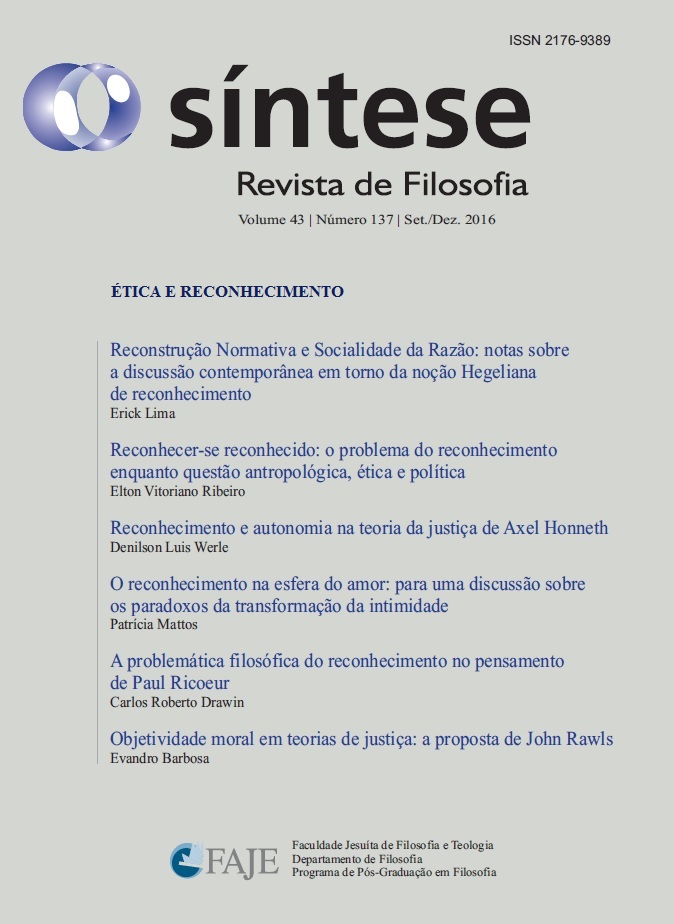RECONHECIMENTO E AUTONOMIA NA TEORIA DA JUSTIÇA DE AXEL HONNETH
DOI:
https://doi.org/10.20911/21769389v43n137p401/2016Palavras-chave:
Axel Honneth. Autonomia. Reconhecimento. Justiça / Axel Honneth. Autonomy. Recognition. JusticeResumo
O artigo pretende examinar a relação entre reconhecimento e autonomia na teoria da justiça de Axel Honneth construída a partir da reconstrução normativa das relações intersubjetivas de reconhecimento mútuo presentes nas práticas sociais e instituições políticas e jurídicas das sociedades modernas. Para entender tanto seus fundamentos normativos quanto para examinar suas possibilidades concretas de realização, a questão da justiça não deve ser formulada em termos meramente distributivos e alocativos, mas sim do ponto de vista da reconstrução de suas gramáticas implícitas nos conflitos sociais e políticos e sedimentadas na estrutura básica da sociedade. A justiça deve ser vista como um conceito relacional orientado para o diagnóstico crítico das relações de dominação social e política arbitrárias, tendo como objeto primário os diferentes contextos e práticas de socialização das pessoas e grupos, tendo em vista primeiramente as estruturas e relações intersubjetivas, e não os estados subjetivos ou supostamente objetivos de provisão de bens e de satisfação de necessidades.
Abstract: The article aims to examine the relations between recognition and autonomy in Axel Honneth's theory of justice. This theory is based on the normative reconstruction of the interpersonal relations of mutual recognition which are present in the social practices and political and legal institutions of modern societies. To understand its normative foundations as well as examine its practical possibilities of realization, the question of justice should not be made on purely distributive and allocative terms, but by reconstructing the “grammars” of justice, that are implicit in social and political practices and sedimented in the basic structure of society. Justice must be seen as a relational concept designed for the critical diagnosis of arbitrary relations of social and political domination. The primary subject of justice is the different contexts and practices of individual and group socialization. It should first bear in mind the structures and interpersonal relations and not the subjective or putatively objective states that provide goods and satisfy needs.


















